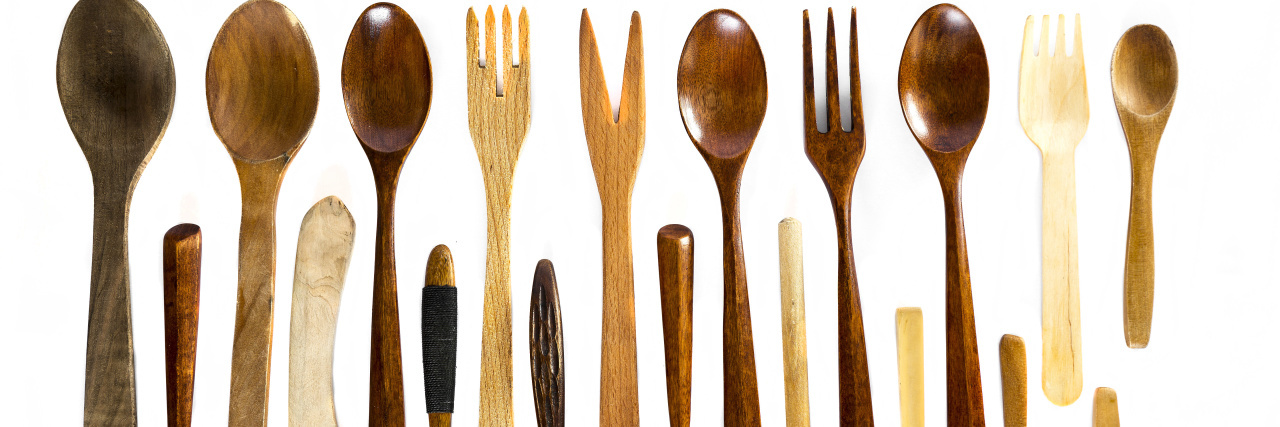Many of you may know about the Spoon Theory.
Basically, it says that every person with a chronic illness receives a certain number of spoons per day, representing energy they can spend doing various tasks. The trouble is, you never know how many spoons you will get. Some days, it may be only enough to get out of bed. Other days, it may be enough to get dressed and go out. But when you’ve used up all your spoons, you’re done for the day — whenever that may be.
Lots of people use “Spoonie” language to simply indicate that they’re tired. Many of us with chronic illness use Spoon Theory often. It’s a way of explaining to the neurotypical why we may have the energy one day to do things but not the next. We’re out of spoons and that’s it. My husband now speaks fluent Spoon.
In 2018, a new theory appeared, first on Tumblr and then on Facebook — and went viral. It’s called Fork Theory (you can find the whole story here). Fork theory came about as an elaboration of the phrase, “Stick a fork in me, I’m done.” Unlike Spoon Theory, which posits something you have at the beginning of the day that gets taken away, Fork Theory says that everyone is stuck with forks, large and small, all day — and eventually, they reach their limit.
Everyone has a Fork Limit. When that limit is reached, the person either falls apart or retreats from the fray and the day.
The thing is, the forks can be minor annoyances, like misplacing your car keys. It can also stem from large incidents, such as encountering one of your triggers. This is often confusing to bystanders when they don’t know how many forks you’ve already been stuck by earlier. Your reaction to that tiny final fork may seem out of proportion. But forks are cumulative. It may be the smallest fork of the day that sets you off, if you have had your quota of forks for the day already.
Some days, dealing with forks is like being nibbled to death by mice (or ducks or cats, if you’re a Babylon 5 fan). In fact, most days are like that. Nothing really terrible happens but you go off on someone anyway when you reach your final fork. And as in Spoon Theory, you never really know what your Fork Limit for any given day will be.
I once reached my Fork Limit on a day when there was a small hole in our roof, directly over the ceiling fan. Water was flung around the room by the still functioning fan. It was actually a very small hole and just a sprinkling of water, but I broke down sobbing. It was the Final Fork.
Another day, the Final Fork came when a co-worker at the magazine company I worked for created his table of contents in alphabetical order instead of numerical. I went home ranting and raving. My husband, having no idea about Fork Theory at the time (neither did I), pointed out the much larger fork he’d been stuck with that day and teased me for being upset by such a minor thing. At other times, he’s been able to see the virtual forks sticking out of me and helped me to calm down, usually by leaving me alone.
I suppose you can build up an immunity to forks, or perhaps your Fork Limit varies from day-to-day. I once survived a tornado but nearly lost it when I couldn’t get a shower to get the gunk out of my hair or a clean pair of underpants.
This week, I have managed not to hit my Fork Limit on any given day, though I have come close. But there is a huge fork waiting for me today — plus, who knows how many smaller ones. This may indeed be the day when I am done.
My wish for you is for a day filled with all spoons and no forks. Those days have to happen sometimes, don’t they?
Image Source: Janet Coburn

